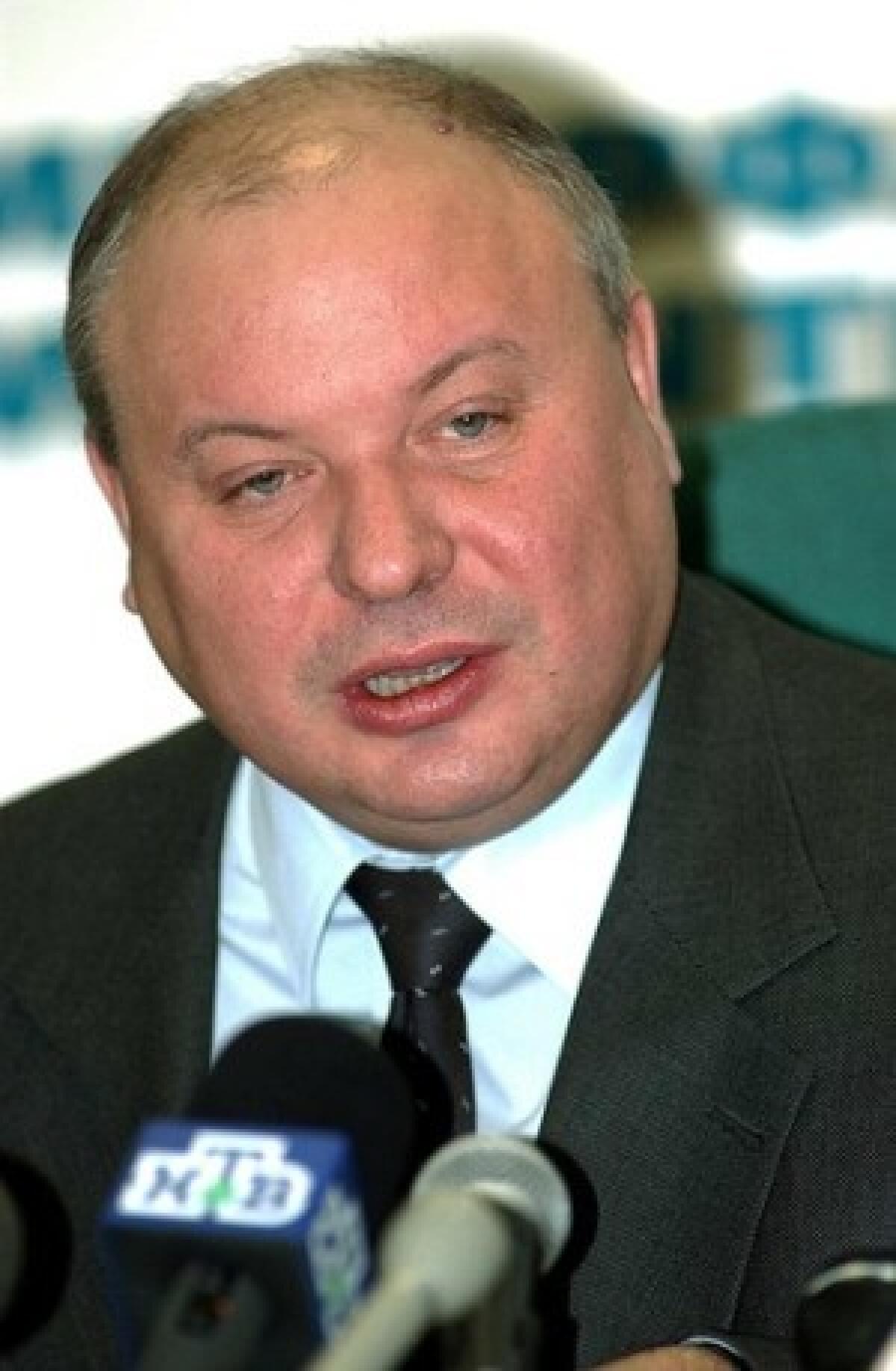Yegor Gaidar dies at 53; economist oversaw Russia’s painful transition from communism to the free market

Yegor Gaidar, a Russian economist thrust by the Soviet collapse into the thankless task of molding a plausible free market from the wreckage of communism, died at his home early Wednesday. He was 53.
The economist died unexpectedly of a blood clot while working on a book, an aide told reporters.
Though he had mostly faded from public life in recent years, Gaidar remained a familiar and fraught presence in the Russian consciousness. He was widely associated with the raucous instability and vanishing life savings that plagued the country’s transformation to a free-market economy in the 1990s.
Gaidar rose to prominence under President Boris Yeltsin and served briefly in 1992 as acting prime minister. As Yeltsin’s leading economist, he pushed “shock therapy” onto Russians, overseeing a thrust of privatization and price deregulation.
As news of his death spread through Moscow on Wednesday, the country’s lingering ambivalence over the rocky transition out of the Soviet economy was heavily in evidence. Even flattering statements and offers of condolences were often laced with veiled criticism of Gaidar’s legacy.
“Not only the communists, but most people in this country, would not find it easy to look for the necessary, tactful words for Yegor Gaidar’s death,” Communist Party deputy Ivan Melnikov told Interfax. “After all, he was not just a man, but first of all a symbol of colossal problems that faced our people.”
Gaidar hit the peak of his career early in life and would soon see himself and his colleagues shunted into a shrinking and increasingly marginalized group of outsiders and opposition figures.
Sweeping to power in the turbulent free-for-all that followed the Soviet collapse in 1991, Gaidar was keenly aware that he was gambling -- and possibly sacrificing -- his own reputation. He famously referred to himself as a “kamikaze.”
As current Prime Minister Vladimir V. Putin rose to power, he and his followers successfully drummed up popular Russian support by deriding the 1990s as a shameful time of defeat, corruption and subservience before the West.
Putin is considered the most powerful force in contemporary Russian politics -- and he has defined himself and won popularity by creating the perception of having wrested the country away from people such as Gaidar.
Still, there was a tacit acknowledgment Wednesday that Gaidar was faced with a massive task in a country of epic proportions. He may have rushed; he may have made mistakes. But he did a job that few would have dared attempt.
And in the end, his supporters say, he took drastic measures, restructured a massive debt -- and pulled the country back from ruin.
“Nobody was eager to take that post in those days,” said Andrei Piontkovsky of the Russian Academy of Sciences. “There was no country. The Soviet Union had just collapsed. There were no reserves in the bank, no reserves of bread in storage.”
Gaidar left, Piontkovsky said, “not a paradise but a working and more or less stable country.”
Former Soviet President Mikhail Gorbachev praised the “intelligent young man” who was once his advisor, RIA Novosti reported. But Gorbachev tempered his praise with criticism, saying pointedly that Gaidar should not have forced his reforms so rapidly on the country.
Gaidar was born in Moscow in 1956 to a family of Soviet elites. His father, Timur Gaidar, was a former Navy admiral who fought in the Bay of Pigs invasion, befriended the Castro family and worked as a journalist for Pravda.
His grandfather, Arkady Gaidar, was a Soviet commander who was a beloved author of Russian children’s books.
The Yeltsin years were tumultuous ones, as spasms of political upheaval and economic woes rocked the country.
In the constitutional crisis of 1993, when a political standoff between Yeltsin and the parliament erupted in street battles in the Russian capital, Gaidar famously appeared on Russian television to exhort ordinary Muscovites to support their president.
After resigning in 1994, Gaidar went on to serve in parliament with the liberal Union of Right Forces party, and to pen several books.
After falling mysteriously ill during a conference in Ireland in 2006, Gaidar suggested that forces hostile to Russia might have poisoned him with the idea of worsening relations between Moscow and the West.
Putin on Wednesday called Gaidar “a real citizen and patriot.”
“Not every state official gets the opportunity to serve his country during the crucial stages of its history, to make key decisions which define the future of the country,” Putin said. “Yegor Gaidar accomplished this difficult task honorably.”
More to Read
Start your day right
Sign up for Essential California for news, features and recommendations from the L.A. Times and beyond in your inbox six days a week.
You may occasionally receive promotional content from the Los Angeles Times.






